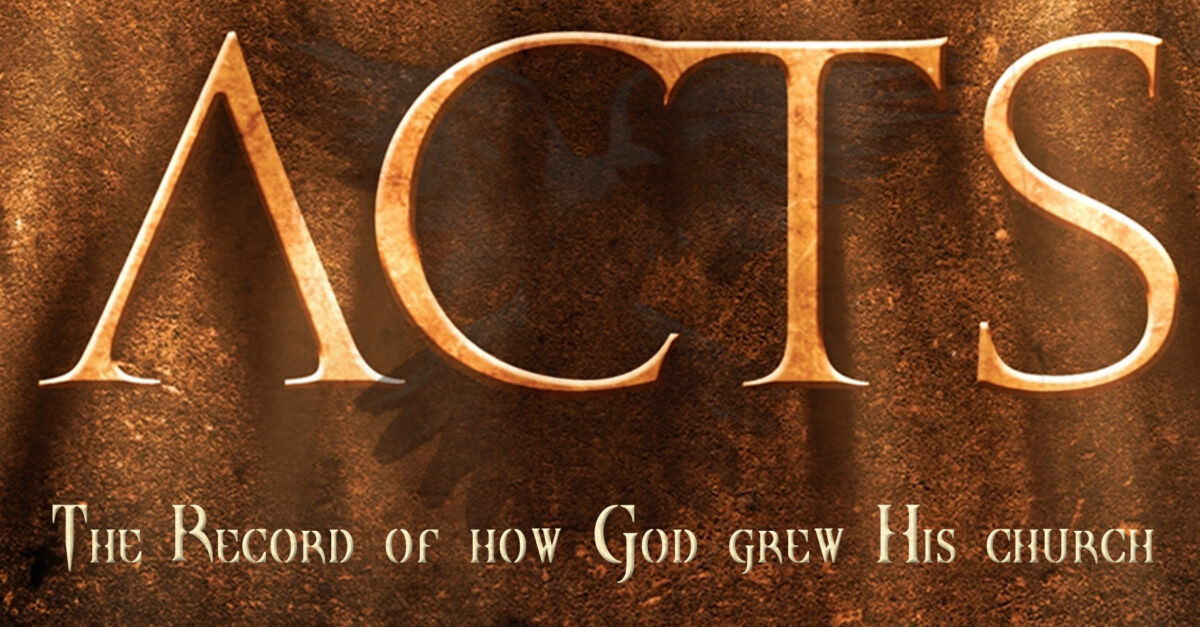Acts 11:1-18 New International Version (NIV)
Peter Explains His Actions
11 The apostles and the believers throughout Judea heard that the Gentiles also had received the word of God. 2 So when Peter went up to Jerusalem, the circumcised believers criticized him 3 and said, “You went into the house of uncircumcised men and ate with them.”
4 Starting from the beginning, Peter told them the whole story: 5 “I was in the city of Joppa praying, and in a trance I saw a vision. I saw something like a large sheet being let down from heaven by its four corners, and it came down to where I was. 6 I looked into it and saw four-footed animals of the earth, wild beasts, reptiles and birds. 7 Then I heard a voice telling me, ‘Get up, Peter. Kill and eat.’
8 “I replied, ‘Surely not, Lord! Nothing impure or unclean has ever entered my mouth.’
9 “The voice spoke from heaven a second time, ‘Do not call anything impure that God has made clean.’ 10 This happened three times, and then it was all pulled up to heaven again.
11 “Right then three men who had been sent to me from Caesarea stopped at the house where I was staying. 12 The Spirit told me to have no hesitation about going with them. These six brothers also went with me, and we entered the man’s house. 13 He told us how he had seen an angel appear in his house and say, ‘Send to Joppa for Simon who is called Peter. 14 He will bring you a message through which you and all your household will be saved.’
15 “As I began to speak, the Holy Spirit came on them as he had come on us at the beginning. 16 Then I remembered what the Lord had said: ‘John baptized with water, but you will be baptized with the Holy Spirit.’ 17 So if God gave them the same gift he gave us who believed in the Lord Jesus Christ, who was I to think that I could stand in God’s way?”
18 When they heard this, they had no further objections and praised God, saying, “So then, even to Gentiles God has granted repentance that leads to life.”
Peter probably stayed in Caesarea for several weeks to teach the new Gentile believers. The journey from Caesarea to Jerusalem would take one week. But the believers in Jerusalem had already heard what had happened to the Gentiles. They had heard the news before Peter arrived!
Some Jewish believers in Jerusalem seemed angry. They were surprised that Peter had stayed with Gentiles. Those Gentiles had not received circumcision. The Jewish believers said that the Gentiles must receive circumcision. Then they (the Gentiles) could join the church. Circumcision was the most important Jewish tradition. So, these Jewish believers wanted to keep it in the church.
The people in the church in Jerusalem may not have heard everything that happened. They had probably heard only part of what had happened. Peter wanted to tell them everything. He started his story with his vision at Joppa. Luke now recorded that event again, in Peter’s words. This was because it was such an important event.
The first Christians were Jews. Some of them wanted to keep the Jewish traditions. They wanted Gentiles to follow Judaism. In the Jews’ opinion, if the Gentiles did that, then they (the Gentiles) could join the church. By means of Peter’s vision, God told the Jews to accept Gentiles without circumcision. Salvation was for Gentiles too, even if they had not received circumcision.
The Greek word for ‘hesitation’ here is the same as in Acts 10:20. But the grammar is different. This changes the meaning. Here, it means that Peter must not make distinctions between Jews and Gentiles.
Peter said, ‘These 6 believers from Joppa also went with me’ (verse 12). So, there were 7 men in total. The Jews knew both Egyptian law and Roman law. In Egyptian law, when people wanted to prove something important, they brought 7 witnesses. This proved that the thing was true. When the Romans wrote something important, they put 7 special marks on the paper. This showed that it was true. So, Peter did not argue with the Jewish believers. He told them the facts. They knew that he was speaking the truth. They knew that because there were 7 witnesses. That was how he proved it.
The angel used the word ‘salvation’. This was important. Cornelius was a good man. But this did not mean that he had received salvation. He received salvation after he heard the gospel. He believed in Jesus and he trusted in him. That is how he received salvation. This is the only way in which people can receive salvation. People do not receive salvation because they do good things. They must repent. They must decide that they do not want to sin any longer. They must accept Jesus as their Lord and Saviour.
This part of Peter’s report caused the most excitement. The Holy Spirit had come down onto the Gentiles! Peter remembered what Jesus had promised (verse 16). Jesus had made that promise before he returned to heaven (Acts 1:5). Now Peter understood that the promise was for Gentiles too. God gave the Holy Spirit to them when they believed in the Lord Jesus. Peter could not argue with God!
Peter convinced the Jewish believers that God had given the Holy Spirit to the Gentiles. They could not argue with God either! Instead, they praised God.
